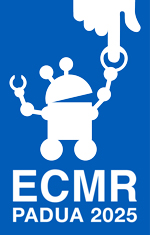
Yiannis Aloimonos
University of Maryland, College Park
Yiannis Aloimonos is Professor of Computational Vision and Intelligence at the Department of Computer Science, University of Maryland, College Park, and the Director of the Computer Vision Laboratory at the Institute for Advanced Computer Studies (UMIACS). He is also affiliated with the Institute for Systems Research and the Neural and Cognitive Science Program. He was born in Sparta, Greece and studied Mathematics in Athens and Computer Science at the University of Rochester, NY (PhD 1990). He is interested in Active Perception and the modeling of vision as an active, dynamic process for real time robotic systems. For the past five years he has been working on bridging signals and symbols, specifically on the relationship of vision to reasoning, action and language.



